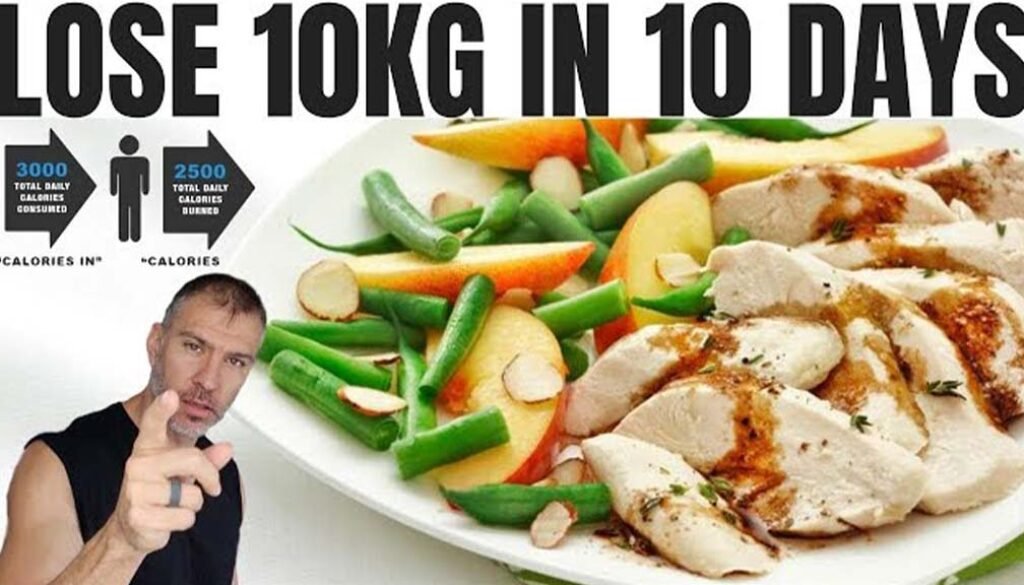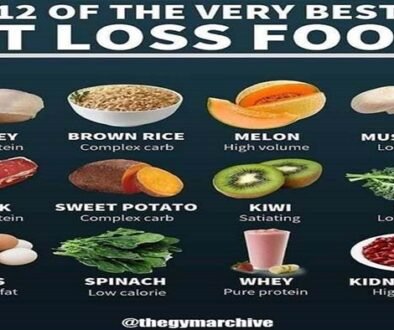How do you safely lose 10 kg in a week?
It is highly inadvisable to lose 10 kg in one week because it is dangerous. The usually recommended amount of safe weight loss is within the range of 0.5–1 kg per week, because this pace allows the body to shed fat while preserving muscle and minimising health risks. Losing weight too quickly can spur serious health complications like nutritional deficiencies, the loss of muscular tissue, and overworking the heart. It should be, instead, from a more pragmatic and realistic perspective: losing weight in a healthy way.
But if you want to jump-start your weight loss, here’s how to do it safely:
1. Recognise the Dangers of Extreme Weight Loss
Extreme weight loss results in dehydration, nutritional deficiencies, the formation of gallstones, and even cardiopulmonary problems.
severe calorie deficit will lead to the loss of lean muscles instead of fat, which will eventually affect your metabolism in the future.
Other common results of this practice are psychosomatic issues such as tiredness, mood swings, and a risk of gaining the lost weight later.
2. Hydrate: Step One
Water intake is crucial for any Weight Loss programme. The most important functions of water include avoiding retention and improving metabolism at a low level.
Avoid sugar-based drinks, that is, colas and juices, which should be replaced with water, herbal tea, or black coffee. It eliminates many unnecessary calories.
3. Eat to Live, Not to Starve
The answer does not lie in extreme calorie restriction. Instead, it lies in the low-calorie yet nutritious food materials that can help to keep your stomach full and reduce food consumption.
Include:
Lean proteins-chicken, turkey, fish, and tofu: As proteins are vital for maintaining muscle mass, they ultimately can keep you full. It is tough to ignore the vegetables, as most of the leafy ones like spinach, broccoli, and cucumbers are highly nutritional and have fewer calories.
Healthy fats: avocado, nuts, olive oil: These satiate and maintain the health of cells in your body when taken in moderation. Complex carbohydrates like quinoa, brown rice, and sweet potatoes give you sustained energy, which refined carbohydrates cannot provide. Processed foods, fast foods, and high-sugar items make for water retention and putting on weight, so best avoided.
4. Create a Calorie Deficit—Safely
Be in a reasonable deficit, but not too aggressive, such as 1,200-1,500 per day, depending on body type and activity level. Too aggressive of a calorie deficit results in muscles wasting away and a deficiency in vital nutrients. It may be prudent to use an application that tracks calories with the expressed purpose of ensuring one is not nutritionally deficient in any one area.
5. Exercise: Mix Cardio with Strength Training
Cardio: It includes HIIT, jogging, swimming, and cycling, which all are forms of calorie burning. Give at least 30-60 minutes to cardio each day to amp up your fat-burning capability.
Strength training: Always adding resistance training will preserve the mass of your muscles while you’re on weight loss. The most worthwhile bodyweight exercises include squats, lunges, and push-ups.
Over-exercising can also cause injury, burnout, and undue stress on the body.
6. Sleep Well
The overall feeling of sleep is an overlooked factor in weight loss. Aim for 7-9 hours per night, or quality sleep, to support metabolism and hormonal balance.
Lack of sleep can raise hunger hormones and lead to overeating.
7. Reduce Salt Intake
Excessive salt intake also leads to water retention in the body, making one feel bloated; hence, this acts to one’s disadvantage due to increased weight. Reduction of sodium intake allows the excretion of excess water weight.
8. Stay Consistent and Realistic
Whereas it is not realistic and safe to lose even 10 kg in just one week, the consistency of a balanced diet, regular exercises, and a healthy lifestyle will eventually lead to gradual and sustainable weight loss in due time. You can track your progress and celebrate the minor victories, such as feeling more energetic and your clothes fitting you differently.
9. Consultation from a Health Professional
For this reason, it is also advisable to consult a physician or dietician before instituting big changes either in diet or exercise. This would ensure that indeed, your approach is safe and suitable for the needs of your body.
10. Set Realistic Expectations
A very rapid loss of weight is often due to the loss of water rather than fat. It will take time to have a realistic loss of fat; hence, it is naive to expect immediate gratification since your goal is long-term health.
Conclusion
Stress Weight Loss in a Sustainable Manner Safety or practicability will not be upheld while trying to lose up to 10 kgs in one week. In fact, what one should aim at is an integrated approach that will emphasise weight loss, which can be clinched on a gradual basis over time. Concentrate on making lifestyle changes that one is likely to be able to maintain long-term; indeed, this does contribute to improvement in health, sustainable results, and overall well-being.



